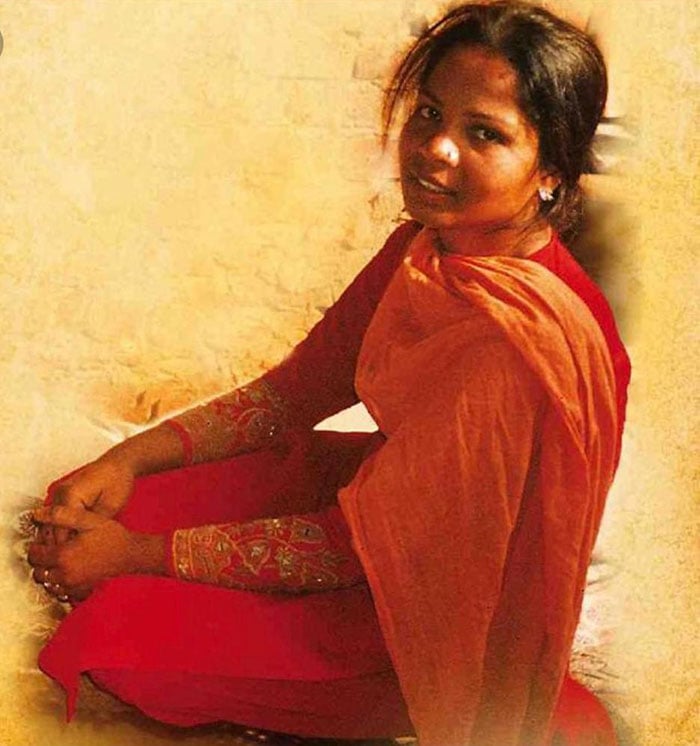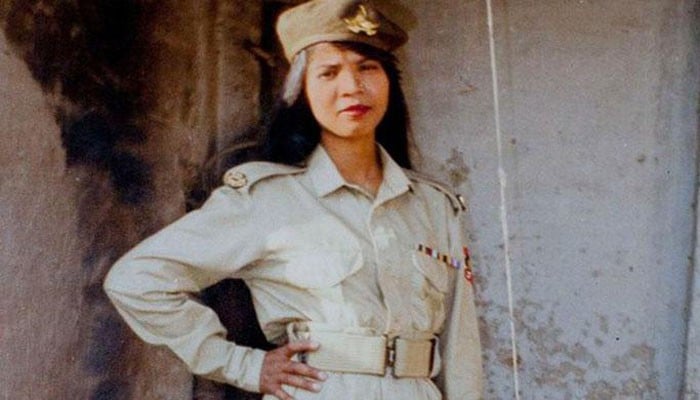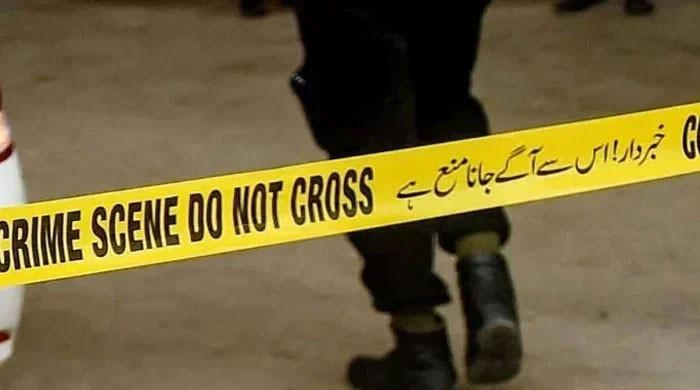Supreme Court acquits Asia Bibi after blasphemy charges not proven
The 56-page verdict in the case states the prosecution failed to prove its case beyond reasonable doubt
October 31, 2018
ISLAMABAD: The Supreme Court on Wednesday acquitted Asia Bibi, a Christian woman sentenced to death over blasphemy allegations. Asia Bibi was cleared of all blasphemy charges and the apex court ordered her immediate release.
A three-judge special bench headed by Chief Justice of Pakistan Justice Mian Saqib Nisar and comprising Justice Asif Saeed Khosa and Justice Mazhar Alam Khan Miankhel heard Bibi's 2014 appeal against her conviction and death sentence under section 295-C of the Pakistan Penal Code (PPC).

The 56-page detailed judgement was authored by Chief Justice Mian Saqib Nisar and included a concurrent opinion by Justice Asif Saeed Khosa.
The chief justice wrote that it was a “well settled principal of law that the one who makes an assertion has to prove it. Thus, the onus rests on the prosecution to prove guilt of the accused beyond reasonable doubt throughout the trial. Presumption of innocence remains throughout the case until such time the prosecution on the evidence satisfies the court beyond reasonable doubt that the accused is guilty of the offence alleged against him.”
The top judge added that the expression "proof beyond reasonable doubt" was of fundamental importance to the criminal justice and was one of the principles which sought to ensure that no innocent person was convicted.
CJP Nisar added, "Keeping in mind the evidence produced by the prosecution against the alleged blasphemy committed by the appellant, the prosecution has categorically failed to prove its case beyond reasonable doubt. The judgments of the High Court as well as the Trial Court are reversed. Consequently, the conviction as also the sentence of death awarded to the appellant is set aside and she is acquitted of the charge. She be released from jail forthwith, if not required in any other criminal case."
The CJP ended the judgement on a Hadith of the Holy Prophet Muhammad (Peace Be Upon Him) on the rights of minorities.
Further, Justice Khosa "because of some important legal and factual issues involved in the case" decided to record his separate concurring opinion which stated that the prosecution had failed to prove its case against Asia Bibi beyond a reasonable doubt. “This appeal is, therefore, allowed, the conviction and sentence of the appellant recorded and upheld by the courts below are set aside and she is acquitted of the charge by extending the benefit of doubt to her," he stated.
Justice Khosa’s opinion added, "Blasphemy is a serious offence but the insult of the appellant’s religion and religious sensibilities by the complainant party and then mixing truth with falsehood in the name of the Holy Prophet Muhammad (Peace Be Upon Him) was also not short of being blasphemous."
"It is ironical that in the Arabic language the appellant’s name Asia means ‘sinful’ but in the circumstances of the present case she appears to be a person, in the words of Shakespeare’s King Leare, “more sinned against than sinning," Justice Khosa's opinion read.
On October 8, the top court had reserved its judgment on the appeal of the Christian mother of four, who in 2010 became the first woman to be sentenced to death under Pakistan's blasphemy law.
Allegations against Bibi
The allegations against Bibi date back to June 2009, when she was labouring in a field and a row broke out with some Muslim women who alleged that she committed blasphemy against Prophet Muhammad (Peace Be Upon Him).
Bibi was convicted of blasphemy and sentenced to death in 2010, despite her advocates maintaining her innocence and insisting the accusers held grudges against her.
Last hearing
During the last hearing on October 8, Bibi's lawyer Saiful Mulook had told the bench that the incident took place on June 14, 2009 and its case was registered on June 19. A case was filed against Bibi by an Imam in Katanwala village who alleged that Bibi had confessed to committing blasphemy, the lawyer said.
To this, Justice Nisar had asked Bibi’s lawyer, "Are these things on record?" However, Mulook had told the bench that the Imam (prayer leader) himself was not a witness to the incident.
“There are also contradictions regarding how the notice of the incident was taken and the complainant has said the decision to register an FIR against Bibi was taken amid a group of people,” he had upheld.
Further, Mulook had said, “Permission was not taken from the district coordination officer (DCO) or the district police officer (DPO) to register the FIR."
He had added that the Imam in the FIR said that the villagers had not attempted to beat up Bibi.
To this, Justice Khosa had remarked, “From your statements we have gathered that the Imam himself did not witness the incident as it happened and no blasphemous words were said in his presence.”
Justice Nisar had then added, “As per the prayer leader's statement, a panchayat was held in a house and 1,000 people had gathered for it."
“The FIR states that Bibi was a Christian preacher, was she really?” the chief justice asked. Mulook responded in the negative and said, “She was never a preacher.”
After hearing the arguments, the top court reserved its judgment on Bibi's appeal. The chief justice had also directed news channels to not discuss the case.













